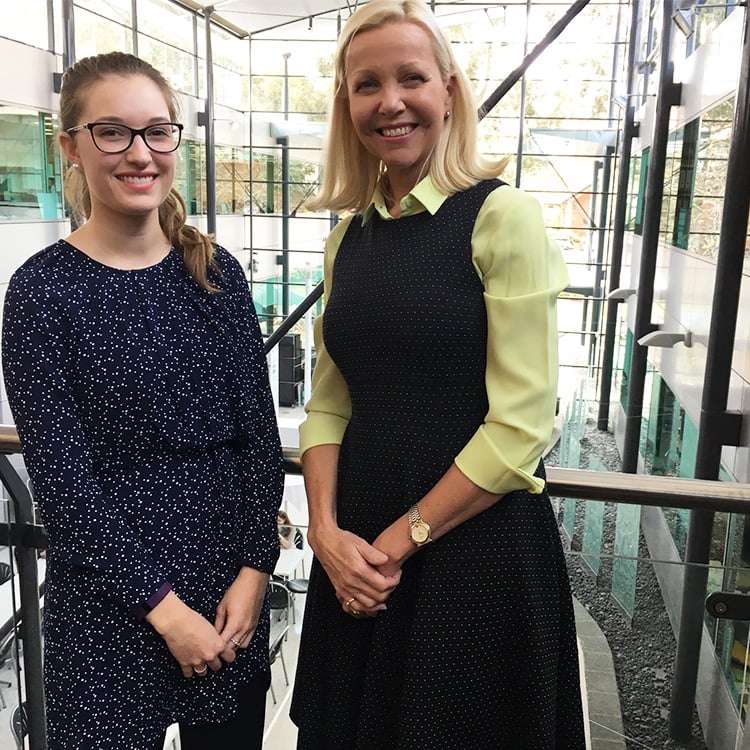
CoLab Top Up Scholarship recipient Belinda Cuomo with CoLab Director Professor Donna Cross
A new scholarship from CoLab will support research into improving access to support services for families of children with developmental concerns.
Curtin University PhD candidate Belinda Cuomo has been awarded $30,000 over two years to support her research.
CoLab is a partnership between The Kids Research Institute Australia and the Minderoo Foundation which unites the expertise of families, policymakers, clinicians, educators, practitioners and researchers, in a bid to work together to improve the learning and development of children and reduce inequality.
Belinda, a postgraduate student in Curtin’s School of Occupational Therapy and Social Work, has already spent 12 months investigating the concerns of teachers and families of children with developmental delays. She is delighted to secure the additional funding for her research.
“It’s really timely in meeting the needs of vulnerable children,” Belinda said. “Delays are getting harder to spot and some families are finding it more difficult to access services.
“Working on the ground as an occupational therapist, it’s become clear that it’s a really big issue in our communities.”
Belinda said statistics from the Australian Early Developmental Census, which is conducted with five-year old children across Australia, suggest around 20 per cent are developmentally vulnerable. In a typical classroom of 30 children, this means up to six children could have learning difficulties, and some can go unnoticed for years.
“Our teachers are fantastic; they do a wonderful job, but they don’t always have specialist knowledge in detecting developmental issues,” Belinda said. “What I’m finding from the literature is that it’s a really complicated area.
“Parents are a child’s first teacher, but where one sees an issue, another doesn’t. Children who have a milder developmental delay that is harder to spot are much more susceptible to falling through the cracks.”
Belinda’s research will focus on finding a public awareness model that communicates the benefits of prevention and early intervention and finds pathways to help and support. It will also examine who is accessing services and the reasons some families miss appointments.
She is hoping to interview parents, teachers and clinicians about their experiences in mid-2018.
“Many families lead really complex lives – they are so busy meeting the basic needs of their children,” Belinda said. “There is some shame and guilt for parents who find it difficult to meet all of their children’s needs. Hopefully research like this will shed some light on improving access to services that can help.”
CoLab Director Professor Donna Cross said Belinda’s research had a clear fit with CoLab’s mission of enhancing service delivery and building the capacity of communities to improve child development and learning.
